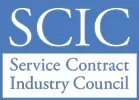Extended Service Contracts on GM Vehicles Still Viable Despite GM Bankruptcy Filing
(Tallahassee, FL) – June 1, 2009 – The Service Contract Industry Council (SCIC), a trade association representing companies selling and/or administering automobile extended service contracts, sometimes referred to as extended warranties, said today that extended service contracts purchased on General Motors vehicles will not be affected by the company’s Chapter 11 filing.
Extended service contracts are sold to consumers separately and are not to be confused with “manufacturers’ warranties,” which are provided to consumers automatically with the purchase of a new car, the SCIC said.
“GM original manufacturer warranties are backed by the Federal government’s Warranty Commitment Plan, while the company’s obligations for extended service contracts sold by GM dealers are backed by highly rated insurance companies that are regulated by the various state Departments of Insurance,” said Timothy J. Meenan, SCIC executive director. “Any repair work under these extended service contracts can be performed at authorized GM dealerships or other authorized repair facilities.
“Additionally, many service contracts purchased on General Motors vehicles are issued by third- party service contract providers that are separate from GM. These third-party service contract companies are regulated as providers and, in most cases, are backed by insurers that are regulated by state Departments of Insurance,” said Meenan. “Like repair work done under both GM manufacturer warranties and extended service contracts, any claims filed under third-party extended service contracts also can be performed at authorized dealerships or other authorized repair facilities.”
Consumers seeking repair service with extended service contracts purchased at dealerships that have closed or are scheduled to close should first attempt to contact the party obligated under the service contract or the service-plan administrator, whose names appear on the contract paperwork. Otherwise, consumers may contact the automaker directly.
The SCIC has worked with state legislatures and regulators since 1989 to implement consumer protection laws that ensure the viability of extended service contracts should an auto dealer or manufacturer go bankrupt, and is an advocate for the regulation of the service contract industry. Nearly 10 million automobile extended service contracts are sold annually, and approximately ninety-five percent (95%) of claims submitted to SCIC member companies are resolved to the customer’s satisfaction.
About SCIC
The Service Contract Industry Council, www.go-scic.com, is a national trade association that educates consumers about service contracts, encourages its members to pursue high standards of customer satisfaction, and has developed and promoted model legislation to regulate the industry with standards designed to protect the consumer and the industry.
Contacts:
Jane Meehan Lanzillo 617-244-0448 [email protected]
Phyllis Laorenza Linnehan 781-275-7226 [email protected]
